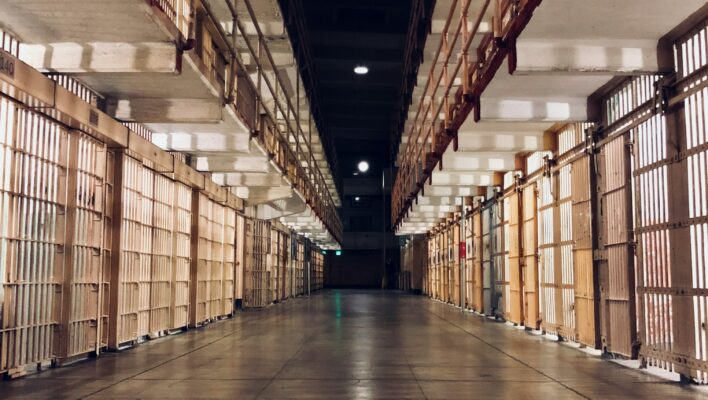Mass incarceration in New Orleans: A toll on people in poverty who can’t afford the bail bond

– Photo by Carles Rabada on Unsplash
It is not a secret! On any given night, half a million people will sleep in a jail cell in the United States because they cannot afford to pay their bail bonds. Many of these individuals are locked up for weeks, months, or even years for nonviolent offenses, such as traffic violations or drug use. The system allows people accused of this kind of offense to be released while they await sentencing—as long as they can afford whatever bail the judge has set. This unfairly condemns low-income people to remain in jail even if they are innocent, which can have serious consequences for their relatives and their income.
Meet Ms. Louise. She and her seven children live in a two-bedroom apartment in New Orleans, the city with the highest rate of incarceration in the world. Without a stable job and income, it is difficult for her to raise her children and provide them with a decent childhood.
Unfortunately Ms. Louise, despite being a hard worker, has had to change jobs three times in three months. This is because, instead of showing up for work, she has had to accompany her son to court. In fact, her efforts were most often wasted, because the judge would postpone the hearing for no apparent reason and without prior notice. She says, “The bail is too high. I can’t pay that! I can’t even pay for my bus ticket! I am sick of the system, we are all locked up! I can’t eat; I can’t sleep.”
Ms. Louise isn’t the only one facing this situation. Bail bonds are becoming more and more of a burden for people in poverty, both economically and psychologically.
However, Congressman Ted Lieu introduced the “No Money Bail Act.” This bill seeks to address the issue that Ms. Louise and many others face – the punishing of so many low-income black families because one of their relatives was unable to pay a bail bond.
The “No Money Bail Act” is a critical opportunity for the criminal justice system reform. The Orleans Parish Prison Reform Coalition, the American Bail Coalition, community organizers, and government leaders are calling for a decrease in the number of unjustified incarcerations, particularly for those in poverty. They are looking for alternative policing approaches that better meet the needs of all communities.
Although the Mayor’s and the Sheriff’s Offices have led a joint planning effort to develop a proposal that will reduce mass incarceration, strengthen public safety, and better serve some defendants, these offices fail to admit that the bail bond discriminates against those in poverty. Unlike those who are able to pay the bail fee, the poor are often unable to pay and thus cannot find another way out. This inability can force these individuals to lose their jobs, houses, or even custody of their children, simply because they are unable to pay the bond following an accusation of a non-violent crime. It has destroyed many poor families. Mass incarceration does not and will not strengthen and make the communities safer.
Prisons are run by private profit-making companies. This leads to abusive incarceration. On top of that, even when a person is allowed out of jail on parole, the conditions are very hard to meet. The person must account for all movements, and pass a urine test every week. If these conditions are not followed to the letter, they go back to prison.
As long as poor people are not part of the conversation and decision-making process in the criminal justice system reform, the mass incarceration of poor black people will not stop. All parties must be willing to bring a better solution in the criminal justice system in order to reform the system in an effective way that will stop mass incarceration and the imprisonment of people in poverty.
By Maria ATD Fourth World USA

